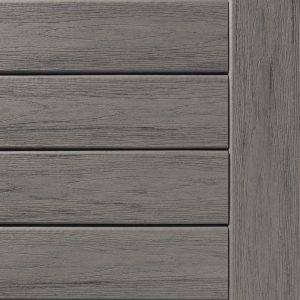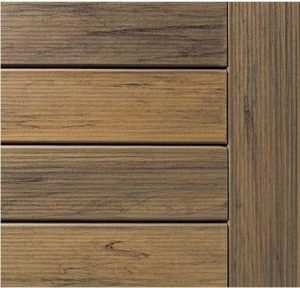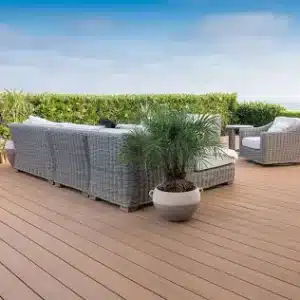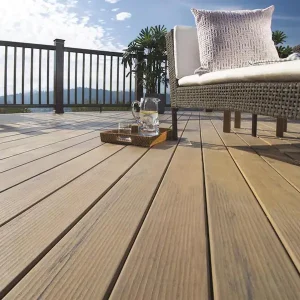Choosing the Perfect Deck: What to Consider Before Making Your Selection
When it comes to choosing the perfect deck for your home, there are several factors to consider to ensure you make a decision that suits your needs, preferences, and budget. At Boston Hardwood Decks, we offer a wide variety of decking options, and we want to help you navigate through these choices to find the one that best fits your lifestyle. Here’s a detailed guide to assist you in making an informed decision.
1. Purpose and Usage
Determine Your Primary Use
Before selecting a deck, it’s crucial to think about how you intend to use the space. Are you planning to host large gatherings and parties, or do you envision a more intimate setting for family dinners and relaxation? Your primary use will influence the size, design, and materials of your deck.
Consider the Traffic
Consider the amount of foot traffic your deck will receive. High-traffic areas may require more durable materials that can withstand wear and tear over time.
2. Budget and Costs
Initial Investment
Your budget will play a significant role in your deck selection. Different materials come with varying price tags. For example, composite decking tends to be more expensive upfront compared to wood, but it may save you money in the long run due to lower maintenance costs.
Long-Term Maintenance
Factor in the long-term maintenance costs. Wood decks, while initially cheaper, require regular staining, sealing, and repairs, which can add up over time. Composite and PVC decking materials, on the other hand, are low maintenance and may offer better value over the long term.
3. Material Options
Wood Decking
Wood decking is a classic choice that offers a natural look and feel. Common types of wood used for decking include:
- Pressure-Treated Wood: Affordable and widely available, but requires regular maintenance.
- Cedar and Redwood: Naturally resistant to rot and insects, but can be more expensive.
- Exotic Hardwoods: Durable and visually stunning, but come with a higher price tag and can be difficult to work with.
Composite Decking
Composite decking is made from a blend of wood fibers and plastic. It’s known for its durability, low maintenance, and resistance to rot and insects. While it’s more expensive than wood, its longevity and ease of care can make it a cost-effective choice.
PVC Decking
PVC decking is made entirely from plastic, offering excellent durability and resistance to moisture, insects, and fading. It’s the most expensive option but requires virtually no maintenance and has a long lifespan.






4. Aesthetics and Style
Color and Finish
Decking materials come in a variety of colors and finishes. Consider the color scheme of your home and outdoor area when choosing your deck. Composite and PVC decking offer a wide range of color options, while wood can be stained or painted to match your desired aesthetic.
Design and Layout
The design and layout of your deck should complement your home’s architecture and your outdoor space. Think about features like built-in seating, planters, or even a pergola to enhance the functionality and beauty of your deck.
5. Climate and Environmental Factors
Weather Resistance
Consider the climate in your area when selecting decking materials. Wood decks may require more maintenance in regions with high humidity or frequent rain, as they are susceptible to rot and warping. In contrast, composite and PVC decking materials are designed to withstand various weather conditions without deteriorating, making them ideal for areas with extreme temperatures or high moisture levels.
Sun Exposure
Think about the amount of sunlight your deck will receive. Decks in full sun may benefit from materials that resist fading and heat absorption. Composite and PVC decks typically have better resistance to fading compared to wood. If you choose wood, opt for a finish that provides UV protection to help maintain its appearance over time.
Environmental Impact
Consider the environmental impact of your decking material. Wood is a natural resource and can be sustainably sourced, but it’s important to choose certified wood products to ensure responsible harvesting practices. Composite and PVC decking are often made from recycled materials, which can be a more eco-friendly option. Additionally, check if the manufacturer has any certifications for environmental responsibility.
6. Installation and Maintenance
Ease of Installation
Some decking materials are easier to install than others. Wood decking usually requires traditional fasteners and can be more labor-intensive to install. Composite and PVC decking often feature interlocking systems or hidden fasteners, which can make the installation process quicker and more straightforward.
Maintenance Requirements
Different materials have varying maintenance needs. Wood decks require regular staining, sealing, and cleaning to keep them in good condition. Composite and PVC decks, on the other hand, require minimal maintenance and only need occasional cleaning with soap and water. Consider how much time you’re willing to invest in deck upkeep when choosing your material.
7. Safety and Comfort
Slip Resistance
Safety is a key consideration, especially if you have children or elderly family members. Choose decking materials that offer good slip resistance, particularly in wet conditions. Many composite and PVC decking options are designed with textured surfaces to reduce the risk of slipping.
Comfort
Consider the comfort of the deck underfoot. Some materials can get very hot in direct sunlight, which can be uncomfortable for bare feet. Composite and PVC decks may be hotter than wood, so if you live in a particularly sunny area, you might want to look for materials with heat-resistant properties or choose lighter colors to minimize heat absorption.
8. Resale Value
Impact on Property Value
A well-chosen deck can enhance the value of your home. Prospective buyers often appreciate high-quality, low-maintenance decking options. If you plan to sell your home in the future, investing in a durable and aesthetically pleasing deck can be a smart choice. Composite and PVC decks, with their long-lasting appeal and minimal maintenance requirements, may offer better resale value compared to traditional wood.
Choosing the right deck involves careful consideration of your needs, budget, and the specific conditions of your home and environment. At Boston Hardwood Decks, we are here to guide you through every step of the process, from selecting the perfect material to ensuring a seamless installation. By taking the time to evaluate these factors, you can create a beautiful and functional outdoor space that you and your family will enjoy for years to come. If you have any questions or need assistance, feel free to reach out to us for expert advice and support.

Joshua Hofer
https://bostonhardwooddecks.comJoshua Hofer is the owner of Boston Hardwood Decks, driven by a deep passion for serving the community. His company stands out for its commitment to providing Boston homeowners with trustworthy professionals and top-notch workmanship for their outdoor deck projects. With a focus on quality and reliability, Joshua has built Boston Hardwood Decks into a trusted name in the industry, ensuring that every customer receives exceptional service and a beautiful, lasting deck for their home.


